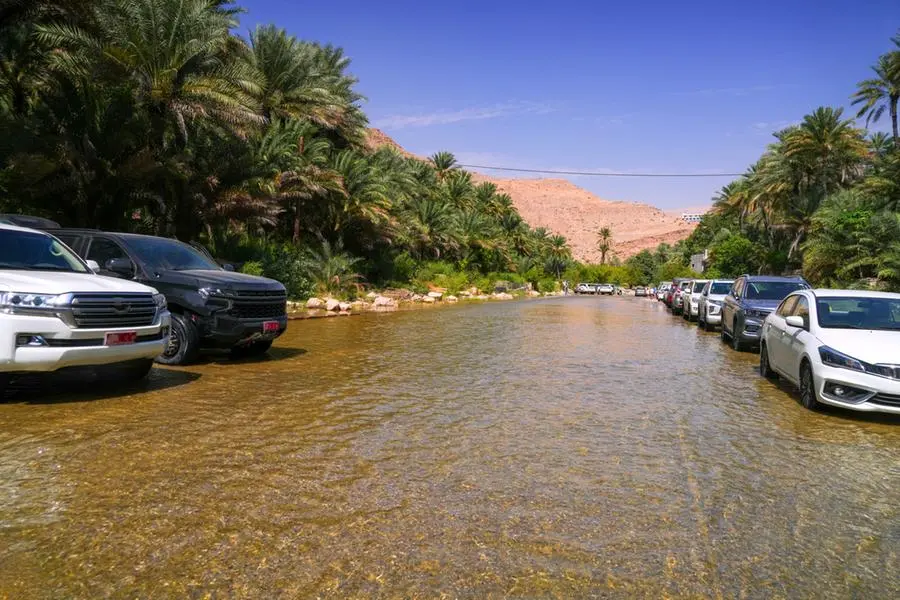PHOTO
Muscat: The GCC Statistical Center (GCC-STAT) has reported a significant 39.6 percent increase in rainfall across GCC countries in 2023, reflecting a notable shift in regional climate patterns.
According to a statement issued by GCC-STAT, average rainfall levels rose from 69.7 mm in 2022 to 97.2 mm in 2023. Despite this increase, rainfall totals remained below the long-term average of 109.6 mm recorded during the 1980-2009 period.
The statement also highlighted that the number of dams built to collect surface water from rainfall increased to 861 in 2023, up from 854 in the previous year, indicating continued investment in water resource infrastructure across the region.
In terms of temperature trends, 2023 marked the highest recorded average temperature in GCC countries, reaching 48.2 degrees Celsius compared to 46.8 degrees Celsius in 2022.
Additionally, minimum temperatures saw a significant rise, with the average minimum temperature climbing to 9.5 degrees Celsius in 2023 from 5 degrees Celsius the year before.
GCC-STAT further noted a substantial leap in solar energy production across the region. Electricity generation from solar sources grew from just 0.13 thousand gigawatt-hours in 2013 to 10.8 thousand gigawatt-hours in 2022, representing an annual growth rate of 81.1 percent.
The design capacity of solar power plants also expanded at an annual growth rate of 94.6 percent over the past decade.
With average daily solar radiation ranging between 5.6 and 6.4 kWh/m² from 1999 to 2018, the region is well-positioned to harness solar energy as a clean, renewable source, particularly during the intense summer months.
GCC-STAT also reported a significant enhancement in climate monitoring capabilities, with the number of climate monitoring stations increasing from 161 in 2013 to 297 in 2023.
Moreover, all GCC member states have adopted national disaster risk reduction strategies aligned with the Sendai Framework for Disaster Risk Reduction 2015-2030.
This global initiative emphasizes prevention, preparedness, response, and recovery in mitigating the impacts of natural disasters.
© Dar Al Sharq Press, Printing and Distribution. All Rights Reserved. Provided by SyndiGate Media Inc. (Syndigate.info).





















